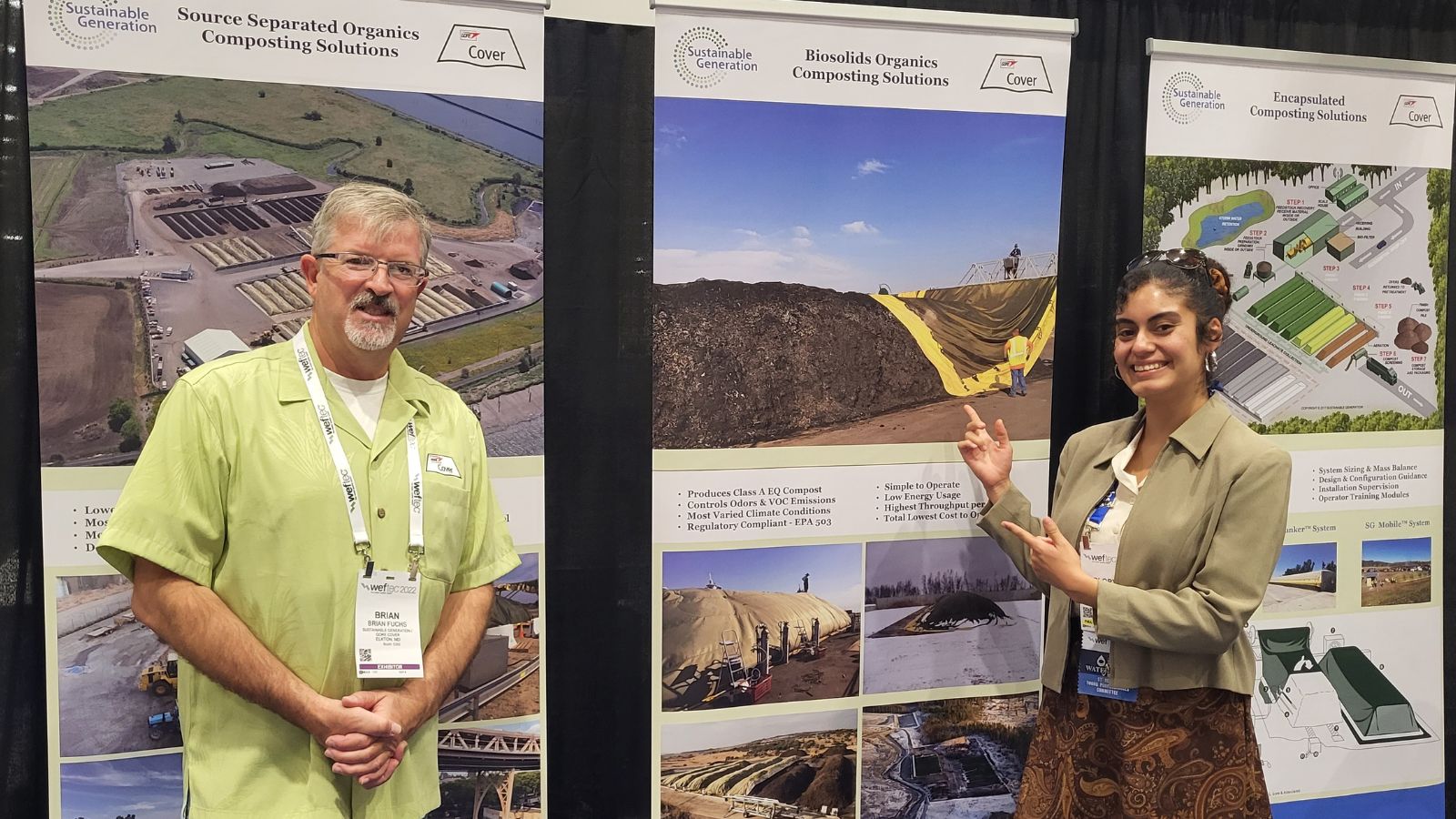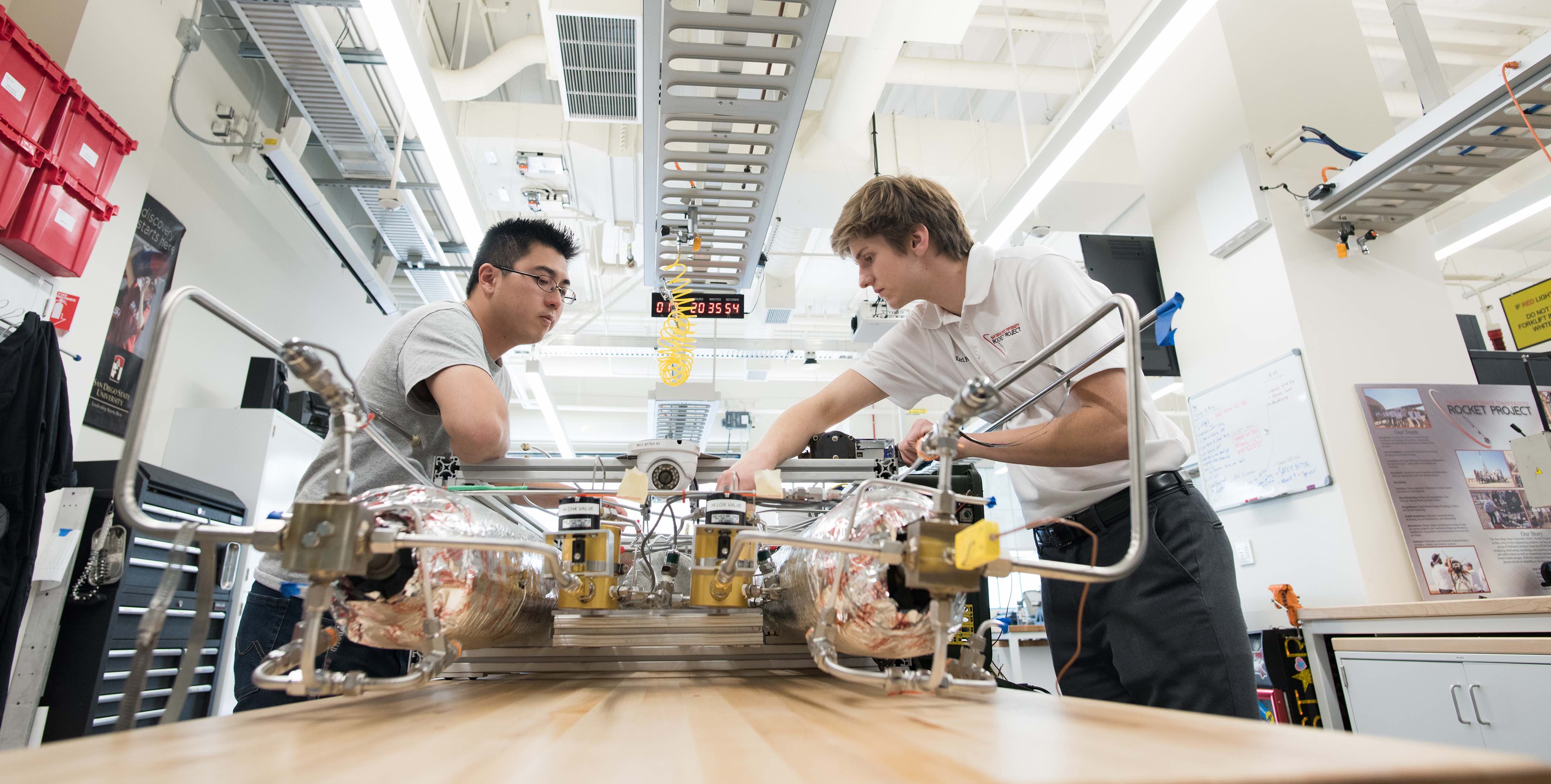Q+A With SDSU's WEF InFLOW STEMPath Scholars Recipients

For the past three years, CCEE professor Christy Dykstra has successfully applied to the international Water Environment Federation (WEF) for student scholarships to attend the WEF InFLOW STEMPath program. This year, SDSU Engineering was awarded two scholarships to give out. A panel of SDSU faculty selected this year’s two winning scholars, civil engineering students Julia Arvizu and Glorya Escobar.
The WEF InFLOW (Introducing Future Leaders to Opportunities in Water) STEMPath program aims to enhance diversity and inclusion in the water workforce. This scholarship opportunity engages participants in WEF events to:
- Solidify their interest in working in the water sector; and
- Increase the probabilities for employment and long-term success working in water.
Through the 2022 WEF InFLOW program, two SDSU Engineering scholars attended virtual professional development activities, and then traveled on an all-expense paid trip to the international WEFTEC conference in New Orleans, Louisiana on October 8-12, 2022.
“Attending WEFTEC is an incredible experience, and allows students like Julia and Glorya to explore career paths related to water and build their professional networks. Going forward, they will also be invited to participate in additional WEF opportunities, including internships and other scholarships. I’m very proud to have Julia and Glorya as our newest SDSU InFLOW STEMPath scholars!” said Dykstra.
Read below to hear more about their experiences in the program and at the conference.
How did you become interested in a career in the water sector?
Arvizu: I became interested in water because as a civil engineering major, I was exposed to the different challenges that us, as engineers, have to take on. Water seemed to be one of the biggest challenges and I became fascinated by the variety of opportunities that there are in the processes of mitigating, treating, and transporting water. Each place in this world has such unique challenges when it comes to water and there are so many passionate people working together on finding innovative solutions.
Escobar: Water is such a valuable resource in Southern California, and as an aspiring environmental engineer and project manager, I think it only makes sense that I learn as much as I can about the water industry.
Which virtual professional development activity was the most beneficial for you and why?
A: As part of the WEFTEC program, we got to hear from many professionals in the industry and one of the most valuable virtual activities we had was having open and honest conversations with hiring recruiters. We were able to ask any questions and get a better idea of what it is that these companies are looking for when considering potential candidates. Another valuable experience was getting paired with a mentor who gave me some great advice on what to look for as a graduate in the job market and also completely fixed and updated my resume.
E: We had the unique opportunity to meet and chat with water industry giants about their journey in the water industry, and specifically on their road towards becoming CEOs, division managers and other leadership. It was inspiring to see many women and people of color in these roles, and to hear how they overcame challenges during their careers.
What was the most memorable takeaway from the International WEFTEC conference?
A: The most memorable takeaway from the WEFTEC Conference was simply sitting in on the technical sessions and getting to hear people in the industry collaborate and talk about the future of drainage and pollutant issues. The conversation was led by a facilitator, the professionals were split into groups, and you got to hear such profound and innovative ways of thinking and approaching these issues by people who work in this industry. Another memorable experience was attending the 'Women in Water' conference where women in the industry discussed ways to encourage the implementation of a balanced workplace and balanced leadership.
E: The most memorable takeaway from the WEFTEC conference was learning about the seemingly infinite careers in the water industry. My understanding of what water professionals do and who they are was extremely narrow before WEFTEC. I am most interested in the engineering aspect of the field, but even within this sector, there is so much to choose to do. I have my eye on stormwater and green infrastructure, industrial wastewater treatment, and consulting and design.
What advice would you give to students, like yourselves, to be successful at SDSU?
A: Apply to anything and everything. Look out for opportunities to be in an undergrad research program, a networking program, research at school, etc. There are so many opportunities for engineers at SDSU that I have taken advantage of and it has contributed a lot to my path. It gives you clarity on what you like and what you don't like and it gets you closer to understanding the industry and how it works. Also, when considering these opportunities, the best way to get selected for them is to show interest and follow up with those that are in charge. These organizations want to see that you're interested and are eager to learn.
E: Bet on yourself and apply to programs that spark your interest, even if you feel underqualified. Be honest about your interests, skills, and goals so that you can match with programs and organizations that are a good fit for you. Make the most of opportunities and step out of your comfort zone.
What clubs and organizations do you recommend SDSU students to join if they are interested in a similar path to yours?
A: I would recommend volunteering in a professor's lab. My experience with Dr. Verbyla has led me to many opportunities and that is mostly due to the endless support that he gives his lab students, he is always telling us about opportunities to apply for. Also, there are so many undergraduate research experiences during the Summer. Lastly, I would say, go to the career fairs on campus, find someone who is hiring for an internship and follow up with them the next day. I recommend getting your foot in the door and to start learning the kind of work that is done in the industry, because it is very different from school.
E: I recommend looking for research opportunities in the laboratories on campus. There are often volunteer and paid positions available. If you are more interested in gaining project experience, look into professional engineering organizations and Engineers Without Borders.

